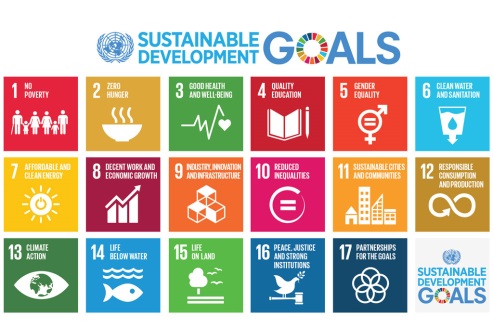CSR Trends 2016 Part 2
Welcome to the second part of CSR Trends 2016 providing you with the top key insights from our Senior CSR Advisers.
If you are a member company please remember to login in the member area to see a more detailed feature with further insights and tips on how you can apply some of these trends to your CSR Strategy. Click here here.
 1) EU Non-Financial Reporting Directive
1) EU Non-Financial Reporting Directive
The EU Non-Financial Reporting Directive must be adopted into Irish law by the end of 2016 and will be effective from 2017 onwards.
Large public-interest entities with more than 500 employees must disclose in their management report relevant and useful information on their policies, risks and outcomes relating to:
- Environmental Matters
- Social & Employee Aspects
- Respect for Human Rights
- Anti-Corruption and Bribery
- Diversity in the Board of Directors (age, gender, geographical diversity, educational or professional background)
Businesses must adopt non-financial reporting, not only from a future legal perspective, but also to provide evidence of responsibilities adhered to, to media savvy consumers.
 2) The Overwhelmed Employee
2) The Overwhelmed Employee
Technology is redefining modern workplaces and the employee experience. In a 2014 Deloitte study, the ‘overwhelmed employee’ was identified as the most pressing HR challenge for Irish and global employers.
While many employees are suffering from exhaustion due to the ‘always on’ technology and work that is ‘always on’, it is widely known that innovation and creativity is fostered by reflection and periods of downtime. Employers will focus more and more on finding solutions to resolve this challenge.
 3) Increased Recognition of Importance of Gender Diversity
3) Increased Recognition of Importance of Gender Diversity
Women are under-represented at every level in corporate pipelines, particularly at senior level.
In Ireland, only 10.7% of women are on the boards of listed companies. While 25% of all c-suite management positions in Ireland’s largest companies are held by women (and a significantly higher proportion than found internationally), figures from the UK show men are 4.5 times more likely than women to reach the executive level.
Unconscious Bias is certainly a factor. In family films, the ratio of male to female characters is 3:1 – the same since 1946! Of the characters in films with jobs, 81% are male. For the situation to change, gender equality has to become a top-ten strategic priority for organisations.
Women make 41% of purchasing decisions, control trillions of dollars of wealth and influence more than 85% of retail decisions. A diverse culture that mirrors its markets tends to do better than its homogeneous competitors.
Catalyst found significantly higher returns in Fortune 500 companies with more women at the top and on their boards of directors.
McKinsey found that, in a group of publicly traded European companies, those with gender diversity in leadership experienced higher return on equity, operating profit, and stock price.
Childcare is a family issue, not a woman’s issue. More men must take up paternity leave (see Mark Zuckerberg of Facebook!).
UPDATE: Just off the press according to BBC Business in the UK companies that fail to address pay differences between male and female employees will be highlighted in new league tables under plans announced on Friday Feb 12th. Companies with more than 250 employees will be forced to reveal their pay gap.
 4) The UN Sustainable Business Goals and their relevance to business
4) The UN Sustainable Business Goals and their relevance to business
In September 2015, at the UN Summit on Sustainable Development in New York, more than 150 world leaders committed to 17 sustainable development goals (SDGs) that aim to tackle climate change and end poverty (among others) by 2030.
The SDGs will replace the millennium development goals as the new global goals to be accomplished in the next 15 years and will serve as the North Star.
It’s not about helping the poorest nations but about all nations working together. Each of the sustainable development goals requires commitment, action and collaboration from business. The WBCSD emphasised that business must have its voice heard because “Business cannot succeed in societies that fail.”
If you are not yet a member of the Network and are interested in joining please contact Joe O’Donnell jodonnell@bitc.ie
Tags:

 2) The Overwhelmed Employee
2) The Overwhelmed Employee 3) Increased Recognition of Importance of Gender Diversity
3) Increased Recognition of Importance of Gender Diversity


